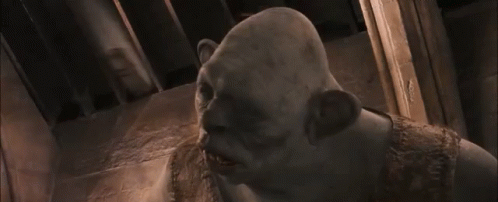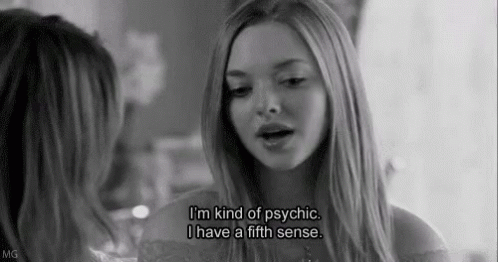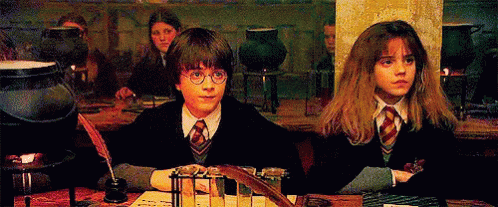Magical Subjects Hogwarts Doesn’t Teach
When it comes to choosing your school subjects, have you ever been left wanting more? Perhaps you wanted to take Mermish, but it wasn’t offered. Do you really need to take Potions? Couldn’t you swap it instead for Alchemy? If you ever wondered what else you could be learning in your magical career, keep reading. The Daily Prophet has compiled a list of subjects not taught at Hogwarts — we’ll leave you to ponder whether that is a good or bad thing. Maybe you’ll be inspired to take on a new course of study this Halloween.
Wandless Magic
As the name suggests, wandless magic is magic performed without the use of a wand. British wizards and witches have been using wandless magic for generations — often accidentally, especially when they are underage. The level of difficulty is high, and at times, it can be unstable — a possible reason why wandless magic is not taught at Hogwarts. We wouldn’t recommend Neville try this type of magic, for example. However, if wandless magic is your jam, it is available at the Ugandan wizarding school, where it is taught and used throughout the African witches’ and wizards’ education.
Magical Languages
It is very surprising that Hogwarts doesn’t seem to offer any kind of language class for its students. It’s especially odd considering that if we are to believe Percy Weasley in Harry Potter and the Goblet of Fire, there are over 200 magical languages out there, such as Mermish, Gobbledegook, and Troll, just to name a few.
Shamanism
Shamans are types of healers using alternative states of consciousness to enter spiritual, emotional, mental, mythical, archetypal, and dream worlds. By working with spirits, Shamans are believed to have the power to heal the sick, communicate with spirits, and escort dead souls beyond. There are two camps of thought about how to become a Shaman: Some believe their powers are inherited, while others (such as in many traditional societies) state that Shamanic training varies but tends to take years. Shamans are also often versed in divination methods and can sometimes foretell future events, including through scrying or the of casting bones or runes.
Invocation and Evocation
Both magical practices involve calling an entity (or spirit) forward. With evocation, the caller is summoning an entity outside of themselves, whereas with invocation, the entity comes forth within the caller, acting through them — think mediums and psychics. We are guessing that this type of magic is quite intense and wildly inappropriate for young minds. Good job, Hogwarts, for not adding invocation and evocation to the school curriculum.
Astral Projection
Astral projection is often described as an out-of-body experience. In magical terms, this means being able to project oneself to an astral plane or anywhere else in the world — great for spies and surveillance-type jobs. However, this is perhaps a subject better left for post-Hogwarts education, perhaps for specialist pathways such as Auror training or security-type jobs.
Wizarding Politics
An understanding of politics is arguably invaluable for everyone to learn. Creating change and knowing your rights is a basic right for anyone, let alone young witches and wizards with scary developing powers. Also, maybe they should nip that whole Death Eater vs. the world thing in the bud by letting students know they don’t have to join an evil maniac to make a change.
Ceremonial Magick
Popping up in the 16th century and popularized in the 19th century by the Hermetic Order of the Golden Dawn, Ceremonial Magick, or Magic, is a blend of occult teachings and has been practiced over centuries by various European occultists. It is best defined as “the Science and Art of causing Change to occur in conformity with Will” (Aleister Crowley). It is comprised of components such as grimoires, magical formulae, magical weapons, and vibrations of god-names. Though there is no “Ceremonial Magick” class at Hogwarts, it is conceivable that all Hogwarts classes and teachings have aspects of Ceremonial Magic.
Necromancy
Necromancy conjures spirits and ghosts of the dead. This kind of magic has been linked with malevolent purposes such as returning a person to life or using the dead as a weapon. As necromancy is often referred to as “death magic,” there is no need to wonder why this is not offered as a Hogwarts course.
Xylomancy
Xylomancy is an alternative form of divination relying on twigs. This is done by reading omens from the position of sticks and dry wood found on one’s path. This class was possibly taught at Ilvermony around 1926.
Other notable school subjects not taught at Hogwarts include Demonology and Toxicology — presumably for reasons as obvious as those keeping Necromancy out of the curriculum.
Which classes on this list would you take if offered at Hogwarts? Let us know in the comments.







